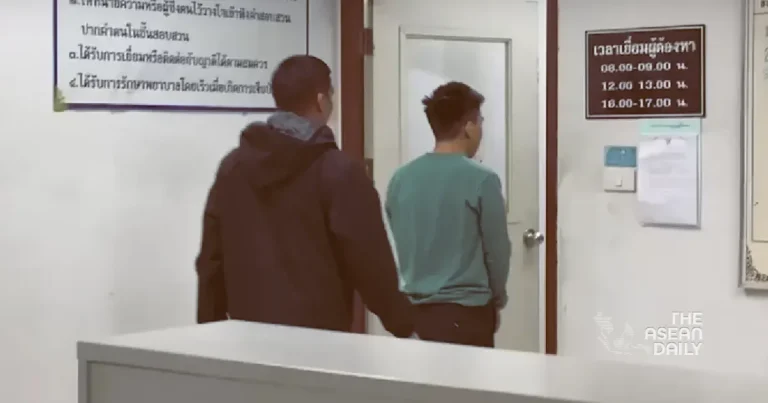25-1-2025 (BANGKOK) Seven Chinese nationals fell victim to a sophisticated trafficking scheme after being lured from Laos with false employment promises, only to be held captive for ransom by a criminal gang that included Thai law enforcement officers.
The victims were enticed across the Mekong River into Thailand’s Amnat Charoen province with assurances of lucrative job opportunities. Upon arrival in Chanuman district, they were immediately detained by their captors, who demanded a ransom of 2 million baht for their release.
The ordeal continued as the Chinese nationals were transported to a resort in neighbouring Ubon Ratchathani province’s Phibun Mangsahan district. There, they were coerced into contacting relatives in Laos to arrange the ransom payment. The perpetrators promised to escort the victims to the Chongmek border crossing in Sirinthorn district once the ransom was paid.
However, the captives managed to secretly alert their families about their predicament from the resort. Their relatives promptly contacted Thai authorities, leading to a swift police operation that secured their release.
In a shocking development, the subsequent investigation revealed that the trafficking ring comprised several members of Thailand’s security forces. Among those arrested were three police officers, a border patrol officer, and a ranger, alongside one Burmese national and two Thai civilians.
All suspects were taken into custody at Phibun Mangsahan Police Station for interrogation. The Chinese nationals face charges of illegal entry into Thailand, whilst the law enforcement members of the gang have been charged with dereliction of duty and abuse of authority.
In an unusual turn of events, media coverage of the arrests was severely restricted. Journalists were barred from photographing the suspects, with police officials citing privacy concerns. The station’s main entrance was sealed off to reporters, and the accused were discretely transferred through a rear exit. Sources within the force indicated that senior officials had ordered minimal publicity to protect the department’s reputation.




